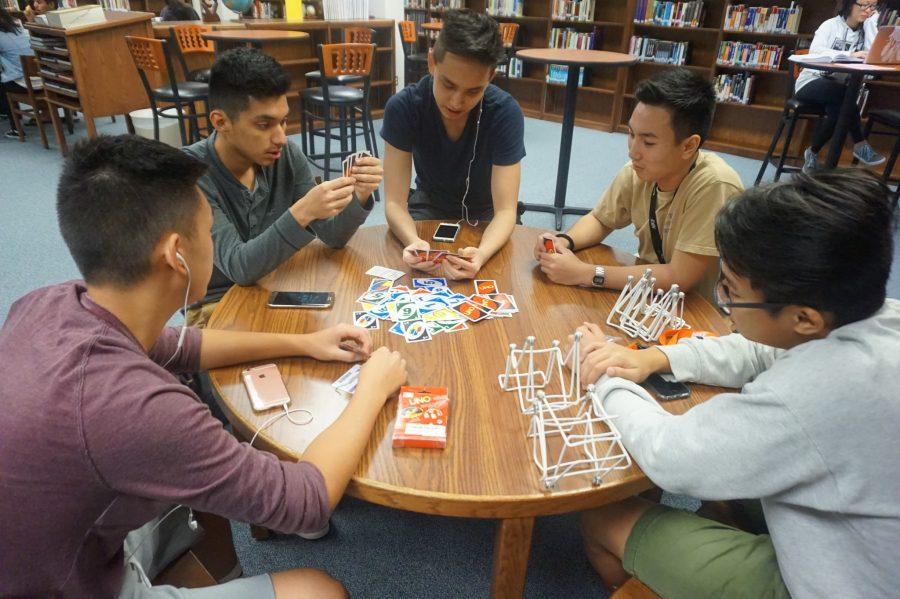 Trang N. sits at her desk in an almost silent classroom. Before her is a blank sheet of paper, with her pencil poised on it. A tense energy fills the room as the teacher opens her binder. Trang readies her hand to write.
Trang N. sits at her desk in an almost silent classroom. Before her is a blank sheet of paper, with her pencil poised on it. A tense energy fills the room as the teacher opens her binder. Trang readies her hand to write.
Then the teacher begins reading – in Vietnamese. Trang scrambles to write down exactly what she hears. She can’t trust the teacher’s pronunciation because she might have an accent and not sound out every letter. Abbreviations will count against her. So will errors in usage, spelling, accent marks, and maybe even handwriting.
Welcome to chinh ta, the dictation test, an integral part of many Vietnamese language classes.
Nine years ago, Trang had to take this test once every two weeks in her Vietnamese class. Now a senior at Kerr, she can fluently read, write, and speak Vietnamese. However, she did not always want to learn it.
“My parents forced me during the first two years,” Trang said. “But after a while I was like, ‘I want to learn my language now.’ I got older and realized that you can get better jobs when you know more languages.”
Trang is now a teacher at her alma mater St. Justin’s Martyr Vietnamese School, one of the many native-language schools that dot the Houston area. She is only one of the large number of Kerr students and teachers who are bilingual—meaning they can speak two or more languages. Many of these people say that learning another language besides English, especially a native language, has benefited them.
“It’s like having twice the money in your pocket,” said English teacher Evguenia Volkova, whose native language is Russian. “Instead of having one culture, you’re exposed to more things in life.”
Volkova grew up speaking Russian and began learning English when she was in the second grade. She said learning a second language gave her more opportunities.
“I got a chance to work elsewhere, not just in my country,” she said. “I think it gave me opportunities to expand my horizons, as far as other cultures.”
Like Volkova, junior Muskan A. grew up speaking a second language at home.
“I can’t imagine only knowing one language,” she said. “Life would be dull.”
Muskan’s entire family speaks Hindi at home, and she said that her knowledge of Hindi has proved useful on trips back to India.
“I like to walk around with my backpack when I’m there and they think I’m some sort of tourist and they try to rip me off,” she said. “If I didn’t speak Hindi they would be able to rip me off more.”
Being bilingual also has its perks in the workplace, according to Spanish teacher Eileen Caetta.
“We’ve had so many students who didn’t see the necessity then come back and say, ‘I need it now, with my job I have to use it,’” she said.
Trang finds it helpful while volunteering.
“They like you better when you can speak Vietnamese,” she said. “You’re more helpful to them.”
That said, knowing more than one language has been known to cause some problems.
“It’s hard to talk because you have to figure out which language you want to talk in,” sophomore Edwin C. said. In addition to English he speaks Spanish, Cantonese, and Mandarin. “You may get into the habit of [combining] all the different languages to make one sentence. That’s not good.”
Volkova, on the other hand, worries that knowledge of her native language is slowly deteriorating.
“Right now, being submerged in English, I feel that my Russian is getting worse because I still read and write in Russian but not as extensively,” she said. “At some point one language might interfere with the other.”
She does, however, maintain her position that bilingualism’s advantages outweigh its disadvantages.
“You can’t fully understand the mentality of other cultures without a glimpse of their language,” Volkova said. And though said cultures can be vastly different, “once you start communicating with people, people are not that different. In fact they’re surprisingly, boringly similar.”
For Trang, knowing another language is simply a matter of heritage.
“I wouldn’t want to not know [Vietnamese],” she said. “I want my future children to know it too. It’s what makes me different from other Americans. It’s my origin, where I came from. It helps me remember my roots.”


